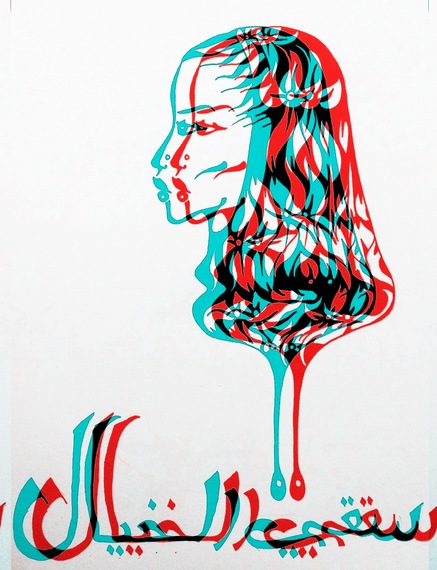Fairytales For Lost Children is a book that was born out of silence. This is interesting to me because there is such a playful use of syntax in this book. The characters reach for ways to express themselves and end up creating their own language. I think we all have parts of ourselves that are locked and not accessible to outsiders. We don't want our self-imposed boundaries to be blurred. Fairytales is partly about the blurring of those borderlines.
I didn't have a voice whilst growing up. There was so much noise and chaos: the noise and chaos of civil war, immigration and psychological disintegration. I was determined to not be a statistic. I was determined to not be the young man who surrendered to the noise and was subsumed in it. Writing this book I was creating a space for myself but not only for myself, I wanted it to be a book that represented the different stages of a young LGBT person's development from childhood through to adolescence and, finally, adulthood. I wanted it to be a book that reflected my experiences but also the experiences of young people everywhere who felt a visceral sense of outsiderhood.
The book is composed of eleven short stories across which the protagonists progressively age. Each story is prefaced with a tattoo-like black and white illustration, and the title of every story is presented in Arabic as well as English. I designed the illustrations as modern riffs on ancient folktales, and even the drop-down capitals at the start of each story have the quality of medieval fairytales transposed to the present. It's the literary equivalent of a mashup mixtape.
Arabic calligraphy is something I was exposed to from an early age. I come from a traditional Muslim family and Quran lessons were an important part of my upbringing. If Arabic is not your native tongue, and it isn't mine, you have to try and bring an artist's eye to each inscription. As a child I had a super-tough teacher who drilled all of us in the value of good penmanship, particularly in relation to his dictation to us of the Quran. Because I was an artistic kid I had great penmanship and my teacher adored me, not realizing that my understanding of Arabic calligraphy was linked to what he perceived as misspent creativity. So that particular history, which is steeped in faith, is what inspired the calligraphy that you see in the book.
(illustration by Diriye Osman)
In many senses, the opening story of the book, which is called "Watering The Imagination", is about faith. It's about the faith that parents place in their children, it's about the faith we all have at one point or the other in our place of birth (wherever that is). The story is about a woman who hangs all her hopes and dreams on her daughter, even though her religious faith is in direct conflict with her daughter's sexual orientation. There's something beautiful, and I see this quite often, when parents of LGBT youth decide to support, respect and value their children for who they are as opposed to who they want them to be. It was important for the book to open with a balm-like prose poem that had the feel of a prayer. I like how the mother in the story recognizes the fact that her daughter, who is secretly seeing another woman, is valuable and worthy of respect.
That piece was commissioned by the British-Nigerian novelist Bernardine Evaristo, for an issue of the UK publication, Poetry Review, that she was guest-editing. Even though "Watering The Imagination" is the opening story of Fairytales For Lost Children, it was the last story that I wrote for the collection. It was such an easy story to write and it took me less than an hour over the course of an evening. Jonathan Duncan of Africa is a Country described the resulting book as a series of "nocturnal lullabies", and he's right insofar as many of the stories were written during dark nights of the soul when I had nothing but words for solace. By the time I had written "Watering The Imagination" my life was vastly different from when I had started putting the book together. There was no longer a sense of sadness. I had achieved the hopeful tone of someone who had generated his own freedom, something I had spent my whole life searching for. By the time I wrote this story I knew what love was and I knew what peace was. As someone who had, up until that point, been living in fear it was a powerful statement, a sense of affirmation that I hoped would resonate with my readers, and I'm glad that it did.
Diriye Osman's collection of short stories, Fairytales For Lost Children (Team Angelica Press) won the 2014 Polari Prize for Best First Book. He is the first African-born author to win this award. You can purchase Fairytales For Lost Children on Amazon.


